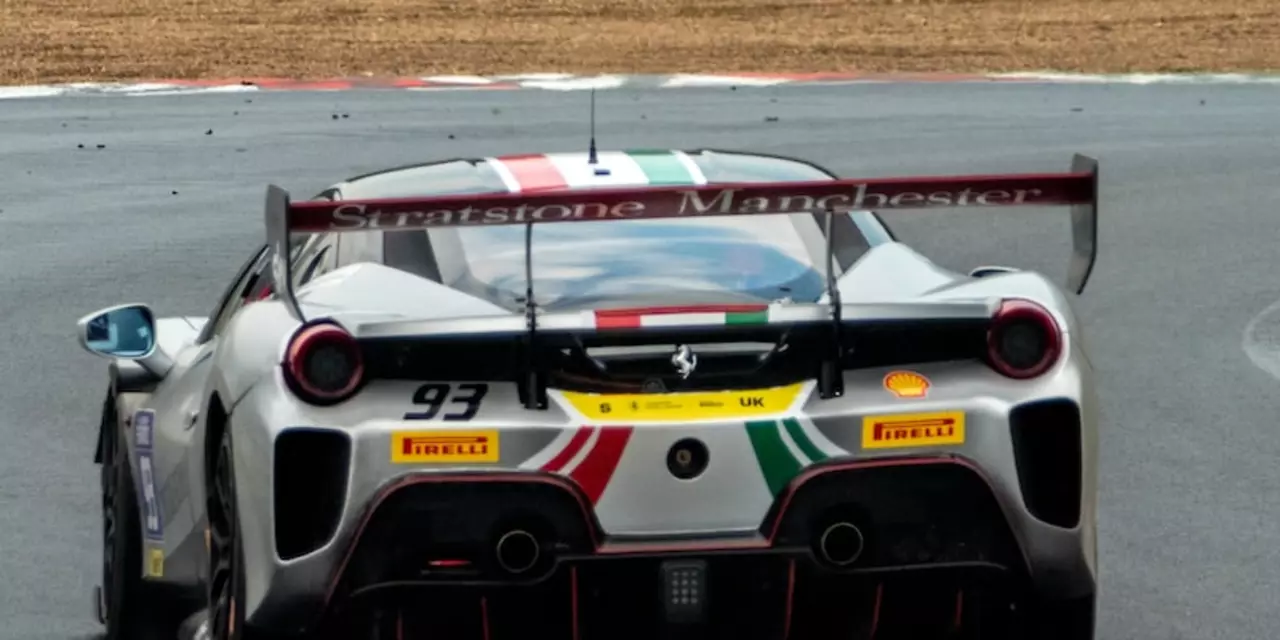
Moto GP is one of the most popular and thrilling forms of motorsport in the world. However, despite its popularity, there is one major brand that is noticeably missing from the Moto GP paddock: BMW. So, why doesn’t BMW have a Moto GP racing team?
The answer is both simple and complicated. On the one hand, BMW has a long and successful history in motorsport, with its cars competing in Formula 1, touring car racing, and the 24 Hours of Le Mans. However, the company has never been as heavily involved in motorcycle racing as it has been in other forms of motorsport.
The primary reason for this is that BMW has always focused its efforts on developing cars rather than motorcycles. This is evident in the company’s commitment to technological innovation in the automotive sector, as well as its efforts to build high-performance cars. As such, the company has not seen the same level of success in motorcycle racing as it has in other forms of motorsport.
Additionally, there are some financial considerations involved. Moto GP is an expensive sport, and BMW would need to invest heavily in order to compete. This would require the company to divert resources away from its core business of producing cars, which could have a negative impact on its bottom line.
Finally, there is the issue of brand recognition. While BMW is a well-known and respected car maker, it does not have the same level of recognition in the motorcycle world. As such, it may not see the same level of return on its investment if it were to enter the Moto GP paddock.
For all of these reasons and more, BMW has chosen to focus its efforts on other forms of motorsport, rather than Moto GP. While this may be disappointing to some fans, it is understandable why the company has taken this approach.
Moto GP racing is one of the most popular and exciting racing series in the world. It attracts millions of fans each year and is home to some of the most talented riders and teams in the sport. Despite its popularity, BMW has yet to join the Moto GP racing circuit. Why is this? The answer may lie in the economics of the sport.
First, Moto GP is an expensive sport. Teams need to invest in the best equipment, riders, and personnel in order to have any chance of success. This costs a lot of money, and despite BMW's deep pockets, the company may not feel that the investment would be worth the potential return. After all, the competition is fierce and victory is far from guaranteed. It may be more profitable for BMW to invest its money elsewhere.
Second, BMW may not be as interested in racing as some of its competitors. While the company has a long history of racing success, it has not been as active in recent years. As such, it may not be as interested in the sport as some of its peers, and may be content to focus on other areas of the market.
Finally, there may be other considerations at play. BMW may not want to compete directly with its rivals, or may feel that the risks associated with Moto GP racing are too high. Whatever the case may be, BMW has yet to enter the Moto GP racing circuit, and it doesn't look like that will change anytime soon.
BMW is one of the world's biggest and most recognizable automakers, but despite their success in other motorsport disciplines, they have yet to field a team in MotoGP, the premier class of motorcycle racing. This is in stark contrast to other major automakers such as Honda, Yamaha, and Ducati, all of whom have had teams competing in MotoGP for decades. So why hasn't BMW decided to join the fray?
The primary reason for BMW's absence from MotoGP is that the company has chosen to focus on other forms of motorsport more closely related to its core business. BMW has long had a successful presence in touring car and endurance racing, with teams such as Schnitzer Motorsport and BMW Team RLL regularly winning titles in the highly competitive DTM and Le Mans Series. These forms of racing are seen as more marketable and relevant to the BMW brand than MotoGP, which is seen as more of a niche motorsport.
Another factor is the cost associated with MotoGP. Teams must make a significant financial commitment to be competitive in the series, which is a risk that BMW is not willing to take. Even for an established automaker such as BMW, the cost of competing in MotoGP is simply too great compared to the potential returns.
Finally, BMW is not keen on entering a series in which it would be competing against its own customers. The company has long prided itself on its customer service, and it would be difficult to maintain that reputation while also competing against customers on the track. This is another reason why BMW has chosen to focus its motorsport efforts on racing disciplines in which it is not competing against its own customers.
All in all, BMW's decision to stay away from MotoGP is understandable considering the company's focus on other forms of motorsport more closely related to its core business, the cost associated with MotoGP, and the difficulty of competing directly against its own customers. While it may seem strange that one of the world's biggest automakers has yet to join the MotoGP fray, it is clear that BMW has made a conscious decision to focus its motorsport efforts elsewhere.
When it comes to motorsport, BMW is a powerhouse. From its legendary 24 Hours of Le Mans victory in 1939 to its success in touring car racing and rallying, the Bavarian automaker has proved time and time again that it has what it takes to compete in the world’s premier motorsport series. Yet, despite its impressive credentials, BMW has never taken part in the Moto GP Racing Series. Why is this?
There are certainly some drawbacks to joining the Moto GP racing scene. Firstly, it’s an incredibly expensive sport, with teams needing to spend millions of euros each year in order to remain competitive. Additionally, the series is highly competitive, and success isn’t guaranteed. As a result, it could be a major financial risk for BMW. Finally, the series is dominated by Japanese manufacturers, who have had a long-term presence in Moto GP racing.
On the flip side, there are also some potential benefits to joining the Moto GP racing scene. Firstly, it would provide BMW with the opportunity to showcase its engineering capabilities on a global stage. Additionally, it could help to raise the brand’s profile in the eyes of motorsport fans. Finally, it could help to develop the brand’s reputation for innovation and cutting-edge technology.
At the end of the day, it’s up to BMW to decide whether or not it wants to join the Moto GP racing scene. While there are certainly potential benefits, there are also some significant risks. Only time will tell if the Bavarian automaker ultimately decides to take the plunge and join the world’s premier motorsport series.
When it comes to the automotive industry, BMW is a name that stands out. The German manufacturer is known for producing some of the finest cars in the world, and its racing pedigree is renowned. However, while BMW has been a major player in the world of motorsport, the company has yet to enter the Moto GP series. For many, this raises the question: Why doesn't BMW have a Moto GP racing team?
The simple answer is that BMW has chosen to focus its efforts on other racing series. The company has long been a major contender in the World Endurance Championship and the Deutsche Tourenwagen Masters, and it recently announced that it would be entering the Formula E series in 2021. This focus on road and endurance racing has meant that the company has had less time and resources to devote to Moto GP, and it has instead chosen to invest in other series.
The impact of BMW's absence from Moto GP racing on the automotive industry is difficult to assess. On one hand, it's possible that the lack of BMW's presence in Moto GP has allowed other manufacturers to gain a foothold in the series and gain greater visibility. On the other hand, BMW's absence could have a negative effect on the series, as the company's reputation for technical excellence and innovation could have helped to elevate the series and attract more fans.
Ultimately, BMW's absence from Moto GP racing is a matter of personal preference. The company has chosen to focus its resources on other racing series, and while this has had an impact on the Moto GP series, it is hard to gauge the exact extent of this impact. Regardless, it is clear that BMW's absence has been felt in the world of motorsport, and it remains to be seen whether the company will ever decide to enter the Moto GP series.




